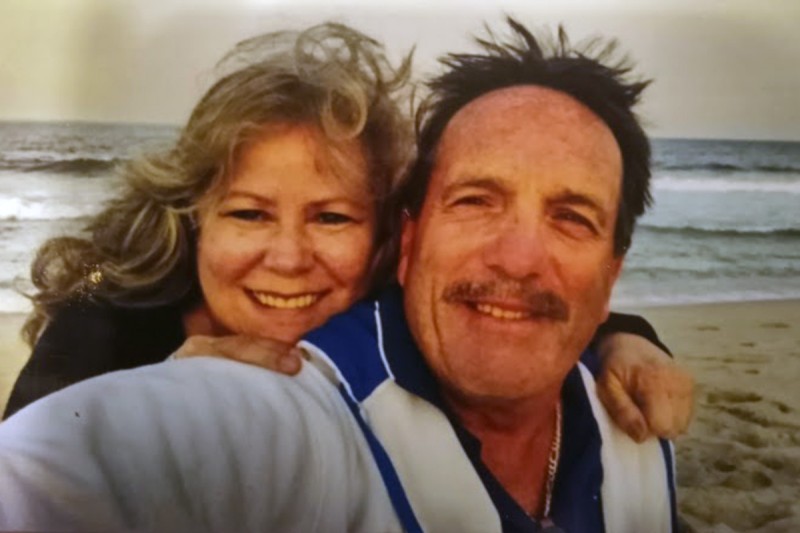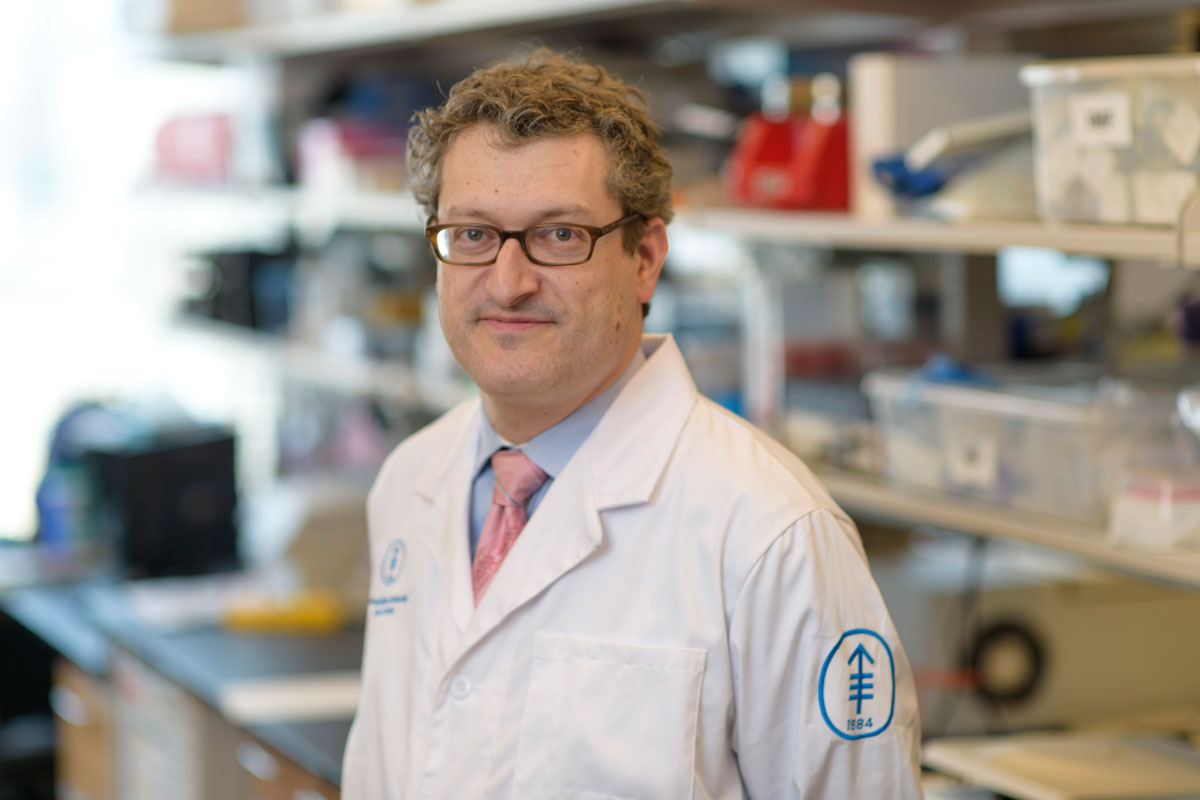
MaryAnn Morrison endured many different treatments for multiple myeloma, but the disease kept returning. A clinical trial at MSK testing a new drug called elranatamab offered her a second chance. Now she and her husband, John, are back to a much more active life.
There is good news about multiple myeloma, a rare blood cancer that can be difficult to treat. This month, the FDA granted accelerated approval to a drug, elranatamab (Elrexfio™) for resistant forms of the disease.
“Widespread availability of elranatamab could help improve the prognosis for many people with this disease, especially when initial treatments stop working,” says myeloma specialist and cellular therapist Alexander M. Lesokhin, MD, who led the development and testing of this drug.
Results for Elranatamab
The approval came after a phase 2 clinical trial (research study) showed that elranatamab shrank the cancer in 61% of patients whose multiple myeloma had stopped responding or had progressed after at least four previous therapies. In more than 70% of those patients, the drug was still working 15 months later. Results from the trial were published in Nature Medicine on August 15.
Elranatamab, made by Pfizer, Inc, is a type of drug known as a bispecific antibody. It targets a protein on myeloma cells called BCMA, as well as a protein on the immune system’s T cells called CD3. Elranatamab redirects the T cells toward the myeloma cells to destroy them. A similar bispecific antibody, teclistamab -– the first such drug for multiple myeloma — was approved by the FDA in October 2022.

Dr. Alexander Lesokhin played a leading role in the clinical testing of elranatamab.
“Elranatamab appears to work on patients whether or not they have been previously treated with BCMA-directed therapies, including CAR T therapy,” says Dr. Lesokhin. “It is very exciting to see this drug now become accessible to a much larger group.”
Dr. Lesokhin was closely involved in clinical development of elranatamab, treating the very first patients in the clinical trial.
“I’m grateful for my patients’ trust and bravery to embark on this journey of hope when no one else had gone there before,” he says.
What Is Multiple Myeloma?
Multiple myeloma arises from a type of white blood cell called a plasma cell. It develops when a normal plasma cell changes into a myeloma cell, which can multiply uncontrollably. Although rare, incidence of the disease is rising as the population ages. While multiple myeloma can be managed with a new array of treatments, it is not curable.
CAR T cell therapies, which genetically engineer a patient’s own immune cells, have recently shown success at treating the disease, but they require time for the cells to be modified, and many patients don’t have access to them. Elranatamab is ready-made.
“It’s a major advance to have another therapy that we can give to patients right away when other treatments stop working,” says hematologic oncologist Saad Usmani, MD, MBA, Chief of the Myeloma Service. “As we learn more and more how to use them in the outpatient setting, we can continue leading the way in showing how these drugs can be given in the community more broadly.”
Elranatamab Patient Success: MaryAnn Is Back in the Pool
When MaryAnn Morrison was diagnosed with multiple myeloma in early 2019, she was a 57-year-old licensed practical nurse living in Brick, New Jersey, married with three grown daughters.
Her first consultation with a nearby specialist left MaryAnn in despair. But her spirits lifted when she got an appointment with hematologic oncologist Nikoletta Lendvai, MD, at MSK Monmouth, about 25 miles from her home.
“I cried tears of relief when I left that office because somebody cared,” MaryAnn says. “I knew I was at the right place, that somebody was going to help me.” MaryAnn was later treated by hematologist and oncologist Carlyn Rose Tan, MD, who took over her care for the next few years.
Multiple myeloma can be unyielding, and the treatment road was rough. Over the next two-and-a half years, MaryAnn received multiple lines of therapy. Some of the treatments caused her to need supplemental oxygen, which continues to this day. The disease would briefly halt, only to resume. It spread to some of her bones, causing painful fractures requiring radiation. MaryAnn was so weak she had to move into the family room because she couldn’t climb the stairs.
By fall 2021, things were looking especially bleak. At that point, Dr. Tan proposed that MaryAnn join the elranatamab clinical trial.
“She was really pushing for it,” MaryAnn recalls. “It was pretty much my last shot. I was so scared, but while I was sitting in the room with her and crying, she got on the phone to get me in the trial. She really went to bat for me and worked her magic. I’m so grateful to her and Dr. Lesokhin.”
In November 2021, MaryAnn began receiving injections of elranatamab. at the David H. Koch Center for Cancer Care at Memorial Sloan Kettering Cancer Center in Manhattan.
Within two months, the signs were positive. Scans and lab tests showed the disease had begun to subside, and a large tumor that had threatened to fracture her left arm began to shrink, presumably in response to the drug. Slowly, MaryAnn was able to become more active. She continues to return twice a month for bloodwork, treatment, and the occasional scan.
“The clinical nurses and the staff at the Koch Center and Monmouth have all been amazing,” MaryAnn says. “I love everybody there. I’ve been going to treatment twice a month for the last four and a half years, and I feel like they’re all my friends.”
Returning to a Fuller Life
Now nearly two years since she started treatment with elranatamab, MaryAnn says she feels the best she has since her diagnosis. She sometimes has side effects from treatment – mainly mild fatigue and nausea – and still moves gingerly due to lingering fractures from the disease. With unwavering support from her husband, John, she has been able to resume many previous activities, from simple tasks like climbing stairs to fun diversions like trips to the beach.
“I can move my arms again, and I walk and exercise in our pool,” she says. “John’s got the music going — it’s very relaxing and peaceful, like a tropical oasis.”
The family just went on their first vacation in almost five years, to the beach at Cape May. MaryAnn loves reading historical novels, going to restaurants with John, and spending time with her three daughters and two grandsons.
“I’m so fortunate to have the family and doctors that I have,” MaryAnn says. “I’ve been granted a miracle. As my husband says: Since I’ve gotten better, it’s like I’ve been wringing a towel dry to get every last drop out of life.”